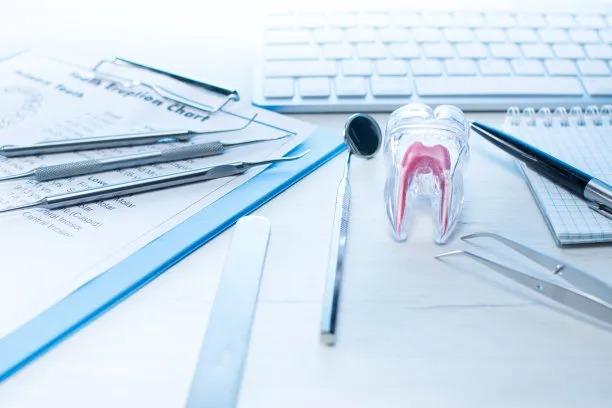Summary: Dental filling procedures are common yet crucial in maintaining oral health. Ensuring a successful procedure requires careful preparation and awareness of post-operative care. This article outlines essential precautions focusing on effective communication with your dentist, appropriate pre-procedure practices, diligent aftercare, and maintaining regular dental visits. By understanding and implementing these precautions, patients can enhance their recovery process, relieve discomfort, and ultimately promote better oral health. The objective is not just to have fillings done efficiently but also to ensure long-term well-being of the teeth and gums. Read on to discover how meticulous attention to these elements can transform your dental experience.
1. Importance of Communication with Your Dentist

Effective communication with your dentist is vital for a successful filling procedure. Before the procedure begins, make sure to discuss your dental history, allergies, and any medications you are currently taking. Openly sharing these details helps your dentist provide the best possible care tailored to your individual needs.
During the consultation, ask questions about the different types of filling materials available, their pros and cons, as well as what you can expect during and after the procedure. This kind of transparency fosters trust and prepares you mentally for the treatment.
After the filling, maintain communication with your dentist regarding any discomfort or unusual symptoms. Quick relay of such information may help in addressing complications early, ultimately leading to a smoother recovery process.
2. Appropriate Pre-Procedure Practices Are Essential
Before undergoing a dental filling, proper pre-procedural practices can significantly influence the outcome. One essential step is to maintain excellent oral hygiene. Brushing and flossing diligently in the days leading up to your appointment can minimize the oral bacteria that may complicate the procedure.
Avoid consuming hard or sticky foods that could aggravate the affected area in the days prior to your appointment. This not only reduces pain and discomfort but also decreases the likelihood of further damage to the tooth, ensuring a smoother filling process.
Additionally, consider scheduling your appointment at a time when you feel most relaxed and comfortable. Feeling anxious can hinder your ability to communicate effectively with your dentist and might impact the procedure’s success.
3. Diligent Aftercare for Optimal Recovery
Post-procedure care is just as crucial as pre-procedure practices. After receiving a filling, it is normal to experience some discomfort. Over-the-counter pain relievers can alleviate discomfort, but if pain persists or worsens, contact your dentist immediately.
Following the appointment, avoid eating hard or sticky foods for at least 24 hours. This precaution helps the filling set properly and reduces the risk of dislodging it. Opt for soft foods that require minimal chewing during this initial recovery period.
Good oral hygiene should continue to be a priority. Gently brush the treated area after 24 hours but avoid harsh rinsing for at least a few days to allow the site to heal. Following these aftercare steps will help in promoting faster recovery and prevent complications.
4. Regular Dental Visits to Maintain Oral Health
Regular dental visits are essential to ensure your oral health remains optimal, especially after having a filling. Schedule follow-up appointments as recommended by your dentist to monitor the filled tooth and detect any future issues early.
Dentists can provide professional cleanings to remove plaque and tartar buildup that regular brushing may miss, which is critical for maintaining the integrity of your fillings.
Lastly, use these visits to discuss any changes or concerns regarding your oral health with your dentist. Proactively addressing potential issues can lead to better management and overall oral hygiene.
Summary:
In conclusion, ensuring the success of your dental filling procedure is a process that encompasses effective communication, proper preparation, diligent aftercare, and regular dental check-ups. Each of these elements plays a crucial role in not only the immediate outcome of the treatment but also in the long-term maintenance of your oral health.
By implementing these essential precautions, you can promote a smooth recovery process and ensure your dental health is in optimal condition. Staying informed and engaged with your dental health is the best strategy for a successful filling experience.
This article is compiled by Vickong Dental and the content is for reference only
Vickong Dental
Vickong Dental is a large medical group established in Hong Kong in 2008 by professors from well-known medical universities in Guangdong and Hong Kong, as well as medical doctors from key national '985' universities (including Master's supervisors and senior professors). The chain of branches brings together expert dentists with PhDs and Master's degrees from Hong Kong and Mainland China, committed to providing high-quality dental treatment.
"Vickong Dental Practices the University Motto of 'Healing and Serving Society,' with a Stable Operation for Sixteen Years. It Has Been honored with Hong Kong Enterprise Leaders's Choice,' and is a Global Trusted Implant Center for the Nobel Implant System. Recommended by Hong Kong Metro Broadcast and Guangdong Television, it Serves Customers from Over Thirty Countries and Regions, Gaining the Trust and Favor of Citizens from the Guangdong-Hong Kong-Macau Greater Bay Area and Surrounding Cities.

Thousands of customers' unanimous praise
The most recognized and highly recommended dental service by customers in the Guangdong-Hong Kong-Macau Greater Bay Area
We Ensure You Receive Detailed Care and Attention Here
Hong Kong standards, Shenzhen prices, Your Trusted English-speaking dentists

Vickong Dental Medical-Grade Instrument Disinfection Process
Vickong Dental Medical-Grade Instrument Disinfection Process

Vickong Dental Chain: A Warm and Comfortable Environment for Treatment






Appointment Hours

Q&A
Why choose Vickong Dental?
Vickong Dental practices the university motto 「Medicine to Benefit Society」, with each branch bringing together highly qualified dentists with doctoral and master’s degrees from Hong Kong and the Mainland, and has maintained seventeen years of steady operation。Recipient of 「2024 Hong Kong Enterprise Leaders Brand」, 「2025 Hong Kong Enterprise Leaders Brand」, a Nobel Biocare Global Trusted Implant Center, and a brand recommended by Metro Radio Hong Kong and Guangdong TV。
To date, we have served customers from more than thirty countries and regions,earning exceptionally high word-of-mouth recognition and trusted recommendations from residents across the Guangdong-Hong Kong-Macao Greater Bay Area and surrounding cities
We have eight major branches in Zhuhai、Shenzhen,and a consultation and service assurance center in Hong Kong,so you can book a free consultation at any time for any questions,which is very reassuring.
If I do not accept the quotation after the CT scan, will I be charged??
No! As long as the actual treatment has not started, you will not be charged any fees.
Will there be any additional charges during the treatment process?
No, there won’t be any additional charges. Before treatment begins, we will clearly explain the treatment plan and its corresponding fees. Only after the patient agrees and signs the consent form will we proceed with the dental service.
Can I pay in Hong Kong dollars?
Yes. Vickong Dental accepts payment in Hong Kong dollars. The amount will be converted based on the exchange rate of the day, and the applicable rate will be clearly communicated to you in advance.
Can I reschedule my appointment at any time?
Yes. Please contact us via **WeChat** or **WhatsApp** as early as possible, providing your original appointment time and details, along with your preferred new date and time slot for rescheduling.













